UC Law SF Celebrates 30 Years of Community Justice Clinics
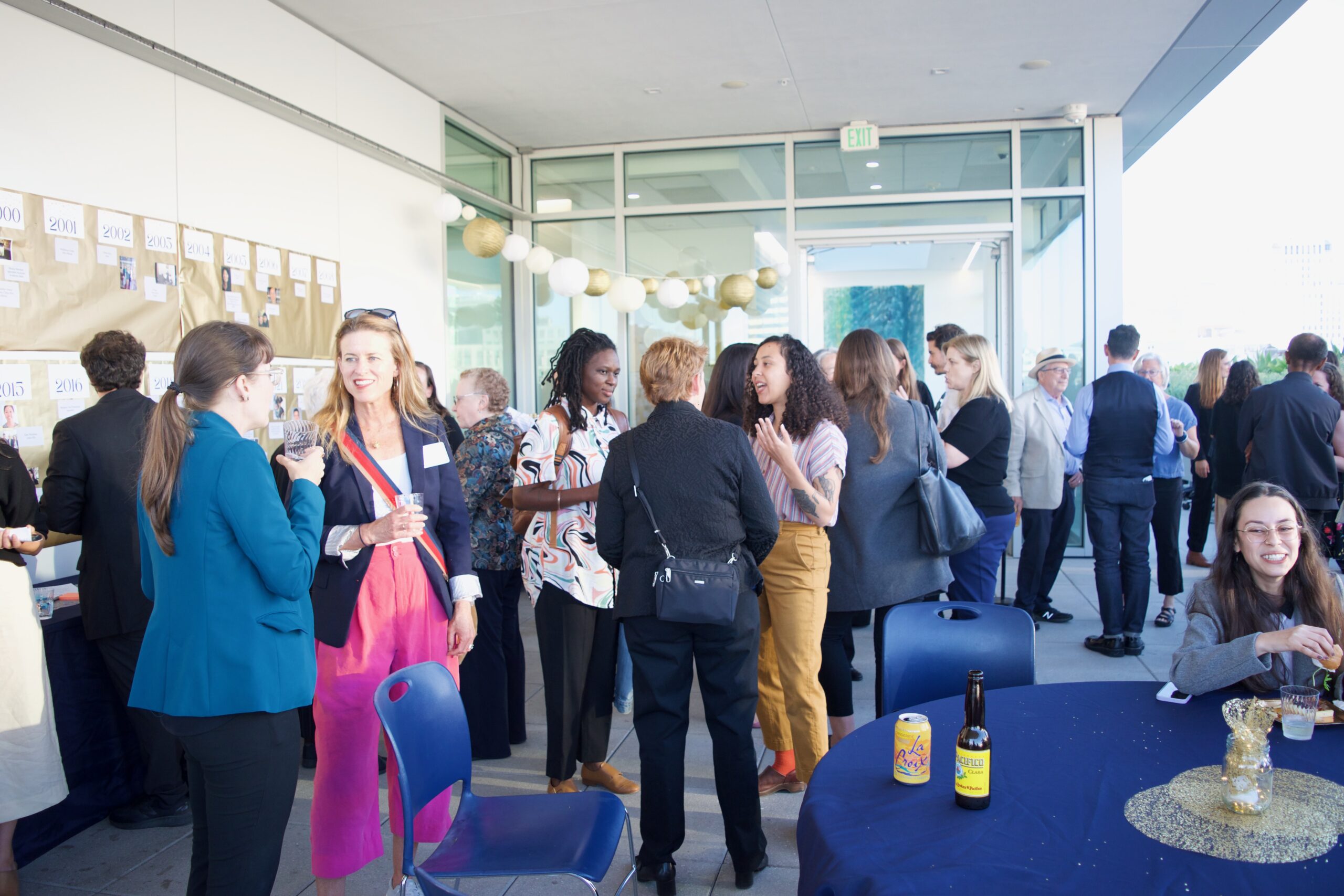
Students and professors past and present were among those who gathered to celebrate the 30th anniversary of UC Law SF’s Community Justice Clinics on Sept. 28.
Over the last 30 years, UC Law SF’s top-rated community justice clinics have trained well over 1,000 future attorneys, allowing them to gain practical lawyering skills while serving the community.
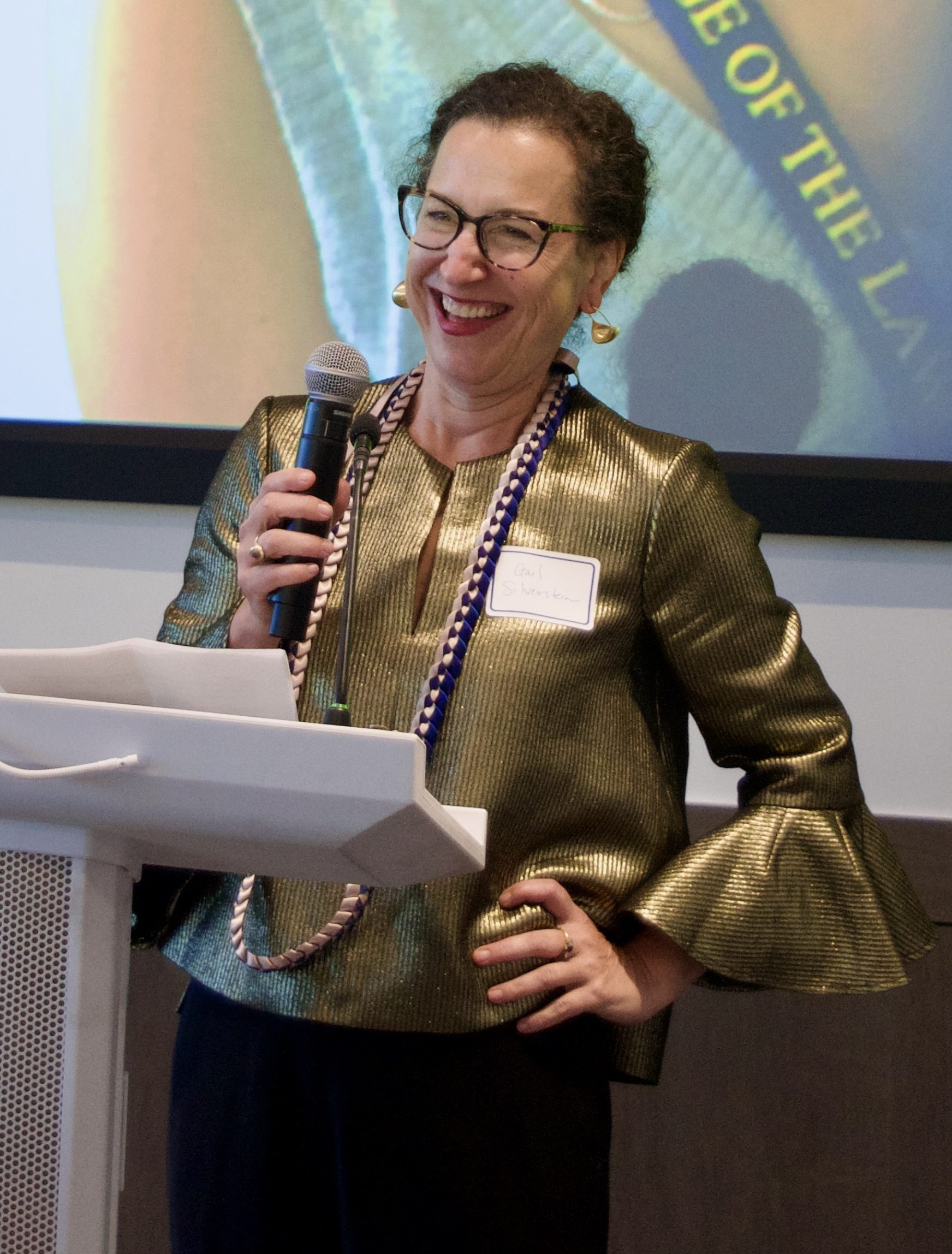
Associate Dean of Experiential Learning and Center for Social Justice Co-Director Gail Silverstein served as master of ceremonies for the event.
This fall, a large group of past clinic students gathered with their former professors and classmates — joined by current clinic students, instructors, staff members, and supporters — to mark the 30th anniversary of UC Law SF’s Community Justice Clinics.
“This event celebrates our top-ranked clinical program’s many years of student learning and service to the community,” said Associate Dean of Experiential Learning Gail Silverstein. “It also shows UC Law SF’s commitment to experiential learning and community service.”
It all started in 1990 when the late Professor Emerita Bea Moulton began working to secure $1 million in funding from the California Legislature to launch the law school’s in-house clinical program, starting with the Civil Justice Clinic in 1993.
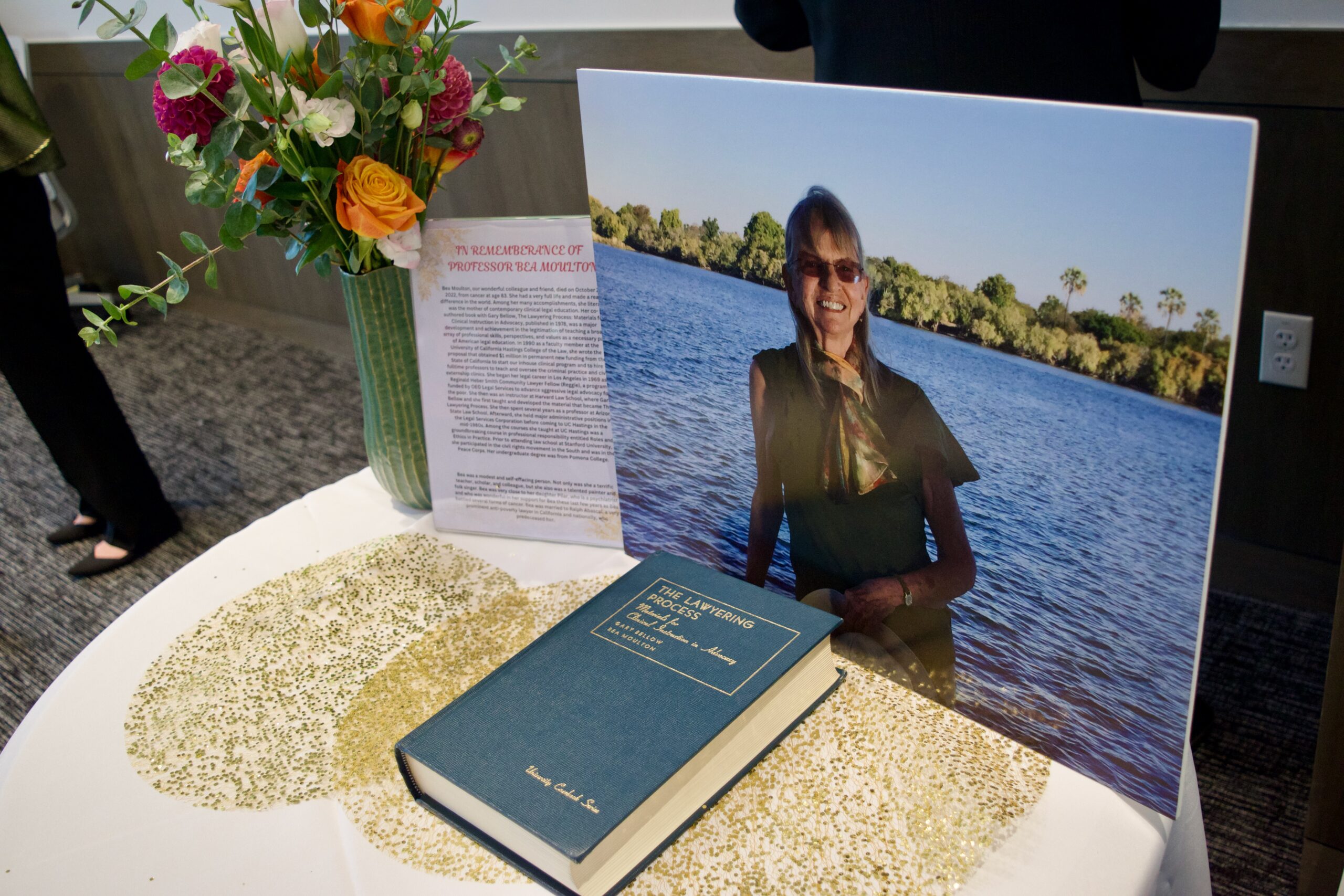
The late Professor Emerita Bea Molton was honored with a memorial table at the event.
Since then, UC Law SF’s clinical program – now ranked among the top 25 in the U.S. – has grown to encompass more than a dozen community-justice-focused clinics that specialize in multiple practice areas, including child welfare, environmental law, immigrants’ rights, mediation, workers’ rights, and more.
At the Sept. 28 celebration, Provost & Academic Dean Morris Ratner acknowledged some of the law school’s earliest and longest-serving clinical professors, including Mark Aaronson, Miye Goishi, Asciano Piomelli, Shauna Marshall, and Nancy Stuart.
“Together they built what we now see 30 years later as a vibrant and essential element of our academic program,” Ratner said.
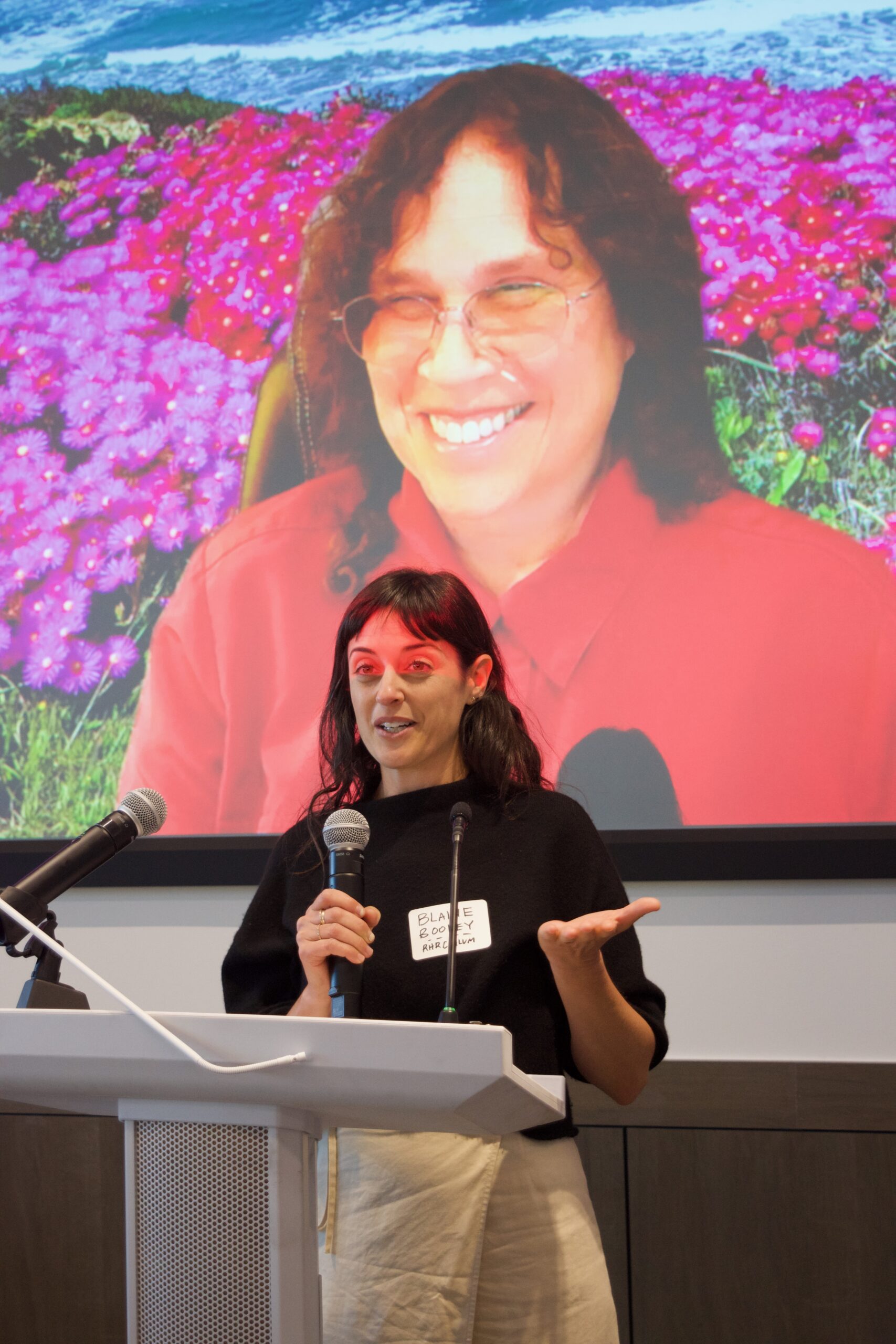
Professor Blaine Bookey celebrated the career of Emerita Professor Kate Bloch in an emotional speech.
Attendees also paid tribute to two recently retired clinical professors: Kate Bloch and Carol Izumi. Bloch, who joined the faculty in 1991, co-taught the Criminal Practice Clinic and spent over 10 years supporting a Haitian law school — l’École Supérieure Catholique de Droit de Jérémie – as it developed a legal clinic that represents Haitians stuck in long-term pretrial detention.
Bloch’s former student and colleague, UC Law SF Professor Blaine Bookey ’09, described Bloch as an exceptional teacher and mentor who has worked tirelessly to support not only her own students and colleagues, but also the Haitian people and its legal education community.
“I think that her secret is the deep care and attention she provides in a very demanding but nonjudgmental way that gives her disciples the skills and the confidence to just get out there and do what we were meant to do,” Bookey said.
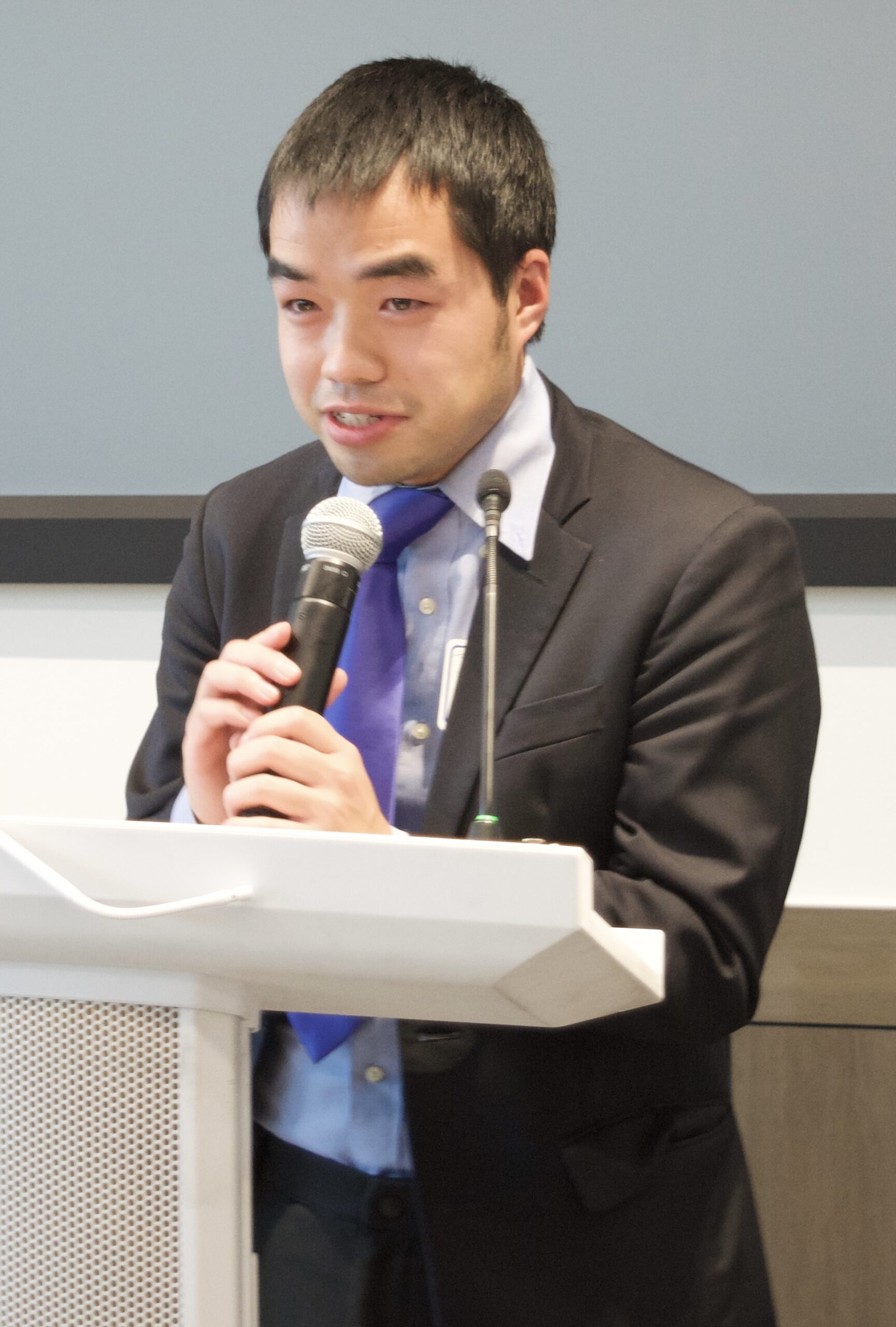
Jeremy Chan ’19 praised his mentor and former professor, Carol Izumi, in a heartfelt speech.
Izumi directed UC Law SF’s Mediation Clinic from 2010 to 2020, but long before that, she gained national prominence as a pioneer of mediation clinical pedagogy in law schools.
Her former student Jeremy Chan ’19 said Izumi inspired him to pursue a postgraduate elder mediation project that helped kickstart his career, leading him to his current job as Staff Attorney at Asian Pacific Islander Legal Outreach.
“That’s just one of the ways that she’s nurtured her students and the community, whether it’s through the Mediation Clinic or the Asian Pacific American Law Students Association or supporting current students or students in their postgraduate immediate endeavors, her heart really shines through in all of those things,” he said.
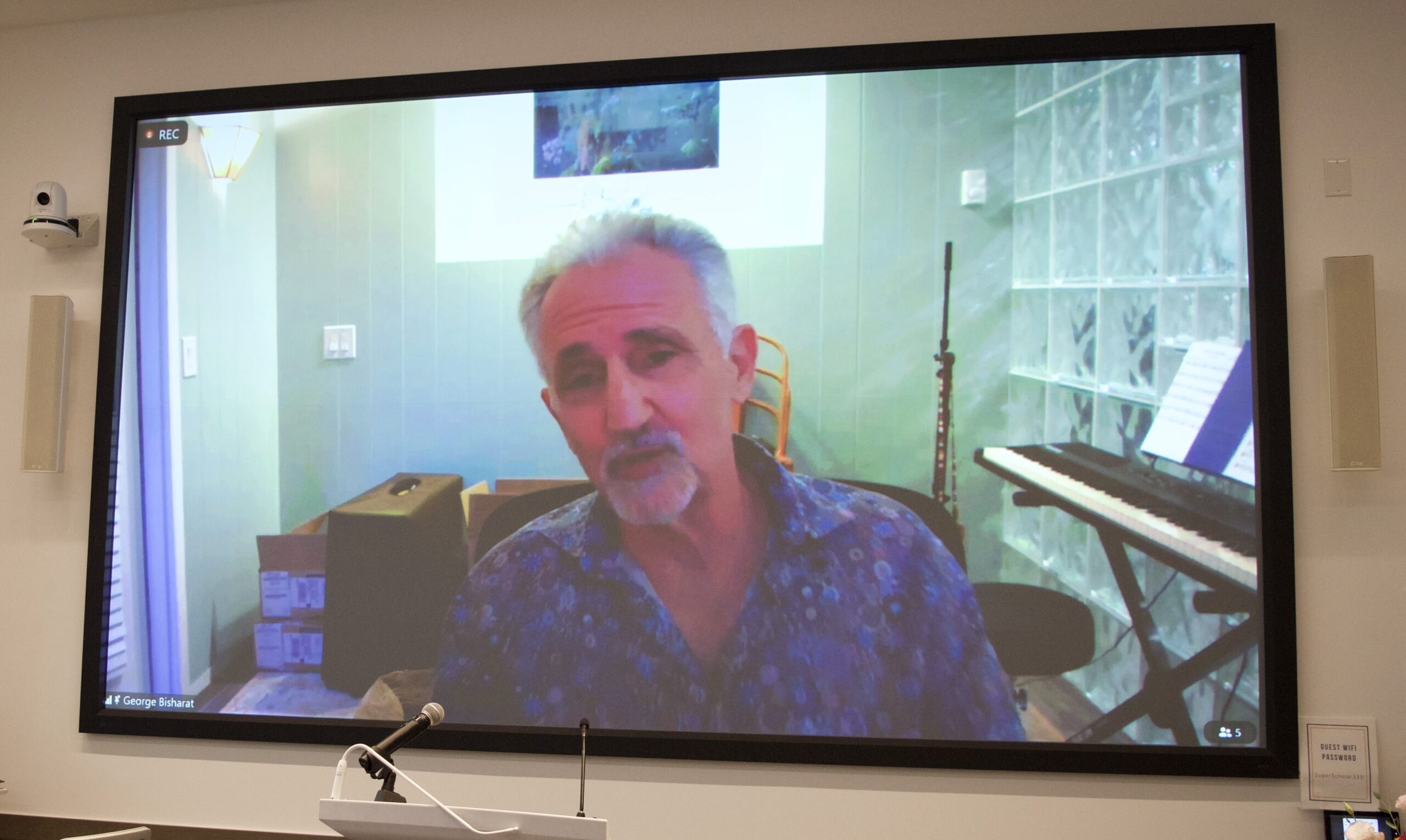
Professor “Big Harp George” Bisharat performed his song, “Take a Knee” via Zoom video conference.
The celebration program ended with a special performance by blues musician “Big Harp George” Bisharat, a longtime UC Law SF professor who co-taught the Criminal Practice Clinic with Bloch for over two decades. He performed his song, “Take a Knee,” alluding to the racial justice movement started by former San Francisco 49ers quarterback Colin Kaepernick in 2016.
“When we’re talking about civil justice or social justice, we are often talking about racial justice as well,” he said. “That’s why I thought this song would be particularly fitting to honor the work of the clinics and especially these two beloved, tireless, effective advocates for social justice, Kate Bloch and Carol Izumi.”